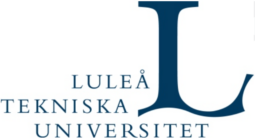The untapped potential of greywater: Decentralised treatment and use for blue-green public spaces
Sweden also has a water shortage some summers. In 2018, more than 80 municipalities needed to introduce restrictions on water use. With source-sorting sewage technology, the possibility of using greywater for irrigating green areas is opened up.
This project aims to show how green-blue infrastructure can be integrated into urban areas by continuously providing purified greywater for irrigation etc. during the summer.
The project will investigate three innovative purification techniques, their design and implementation in public spaces and provide proposals for an overall concept for large-scale implementation. The project is an interdisciplinary collaboration between four research groups and a municipal water service company – the research groups VA Engineering and Architecture at Luleå University of Technology, the Norwegian University of Life Sciences NMBU, Monash University in Australia and NSVA.
In the testbed RecoLab at Öresundsverket in Helsingborg, source-separated household wastewater is handled in a resource recycling facility that provides environmental benefits in the form of increased biogas production, reduction of organic pollutants and recycling of water and plant nutrients.
A green wall, with greywater irrigation, will be studied on a pilot scale. A wetland for full-scale greywater treatment in Oslo will be evaluated in its long-term function. Membrane filtration, a site-efficient treatment method for high-quality treatment of greywater, will be evaluated in full scale. The techniques will be evaluated with respect to biochemical oxygen demand, plant nutrients, pathogens, as well as a selection of microcontaminants and microplastics. Furthermore, it will be studied how blue-green greywater solutions can be designed and integrated in the public space, how obstacles to their implementation and operation can be handled and how different stakeholders perceive the systems. In addition, it will be investigated whether local treatment of greywater can be practically feasible and what savings it brings to the pipe network. Finally, a concept for large-scale implementation of decentralised greywater treatment will be developed.
The project receives funding from Formas, the Swedish research council for sustainable development (registration number 2019-01903).
Project leader
Project manager: Inga Herrmann, Luleå University of Technology
E-mail: inga.herrmann@ltu.se



